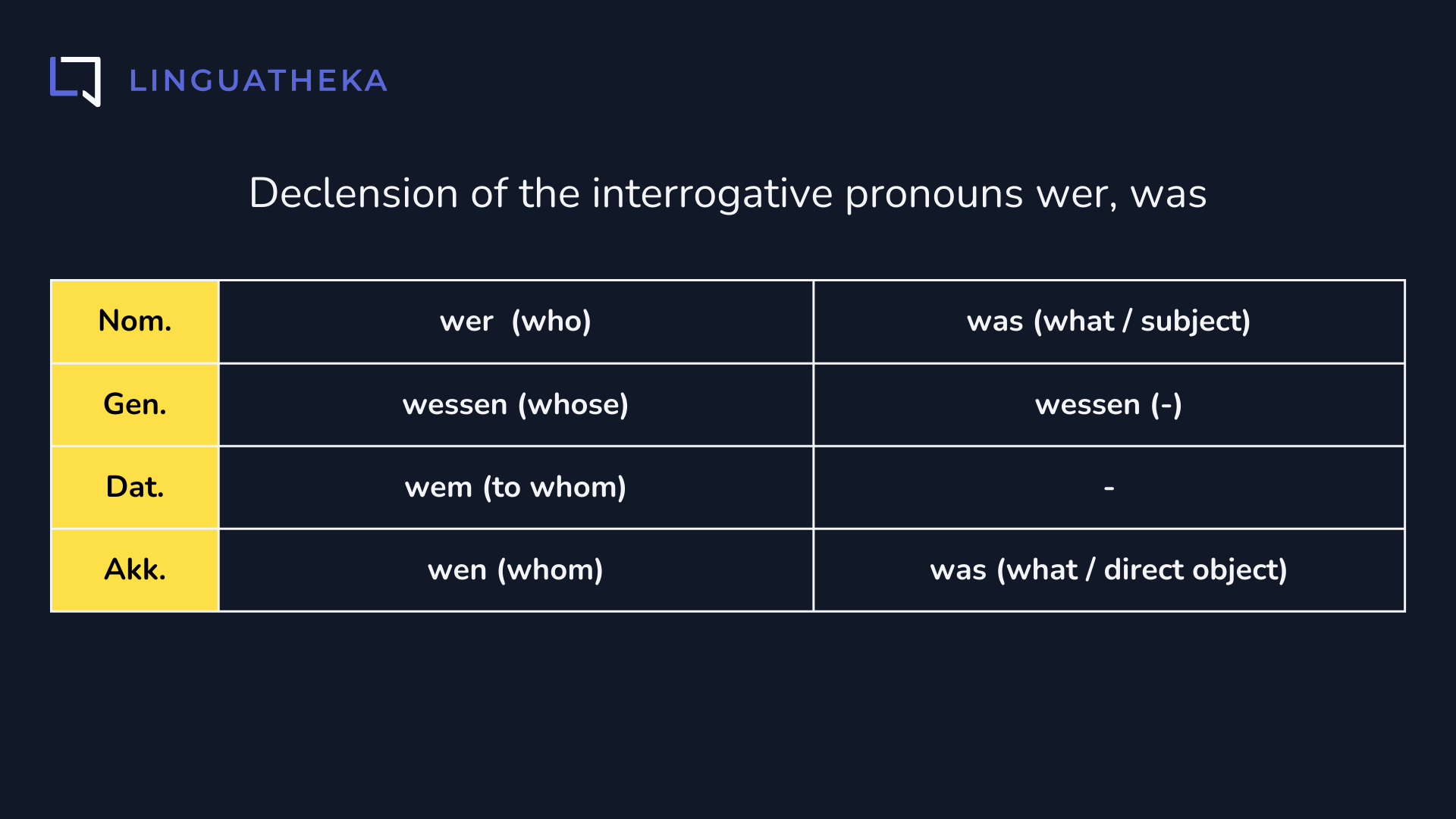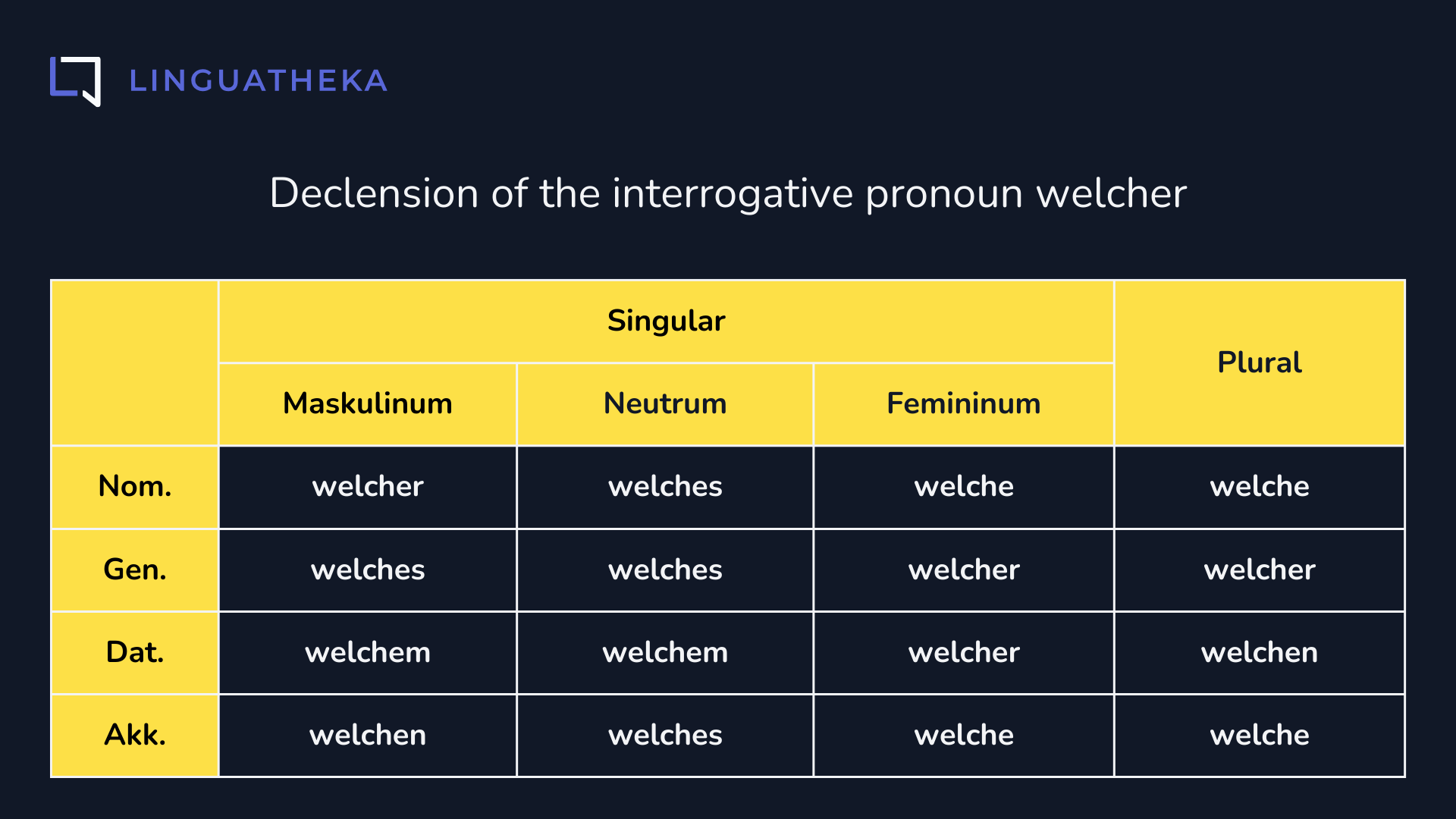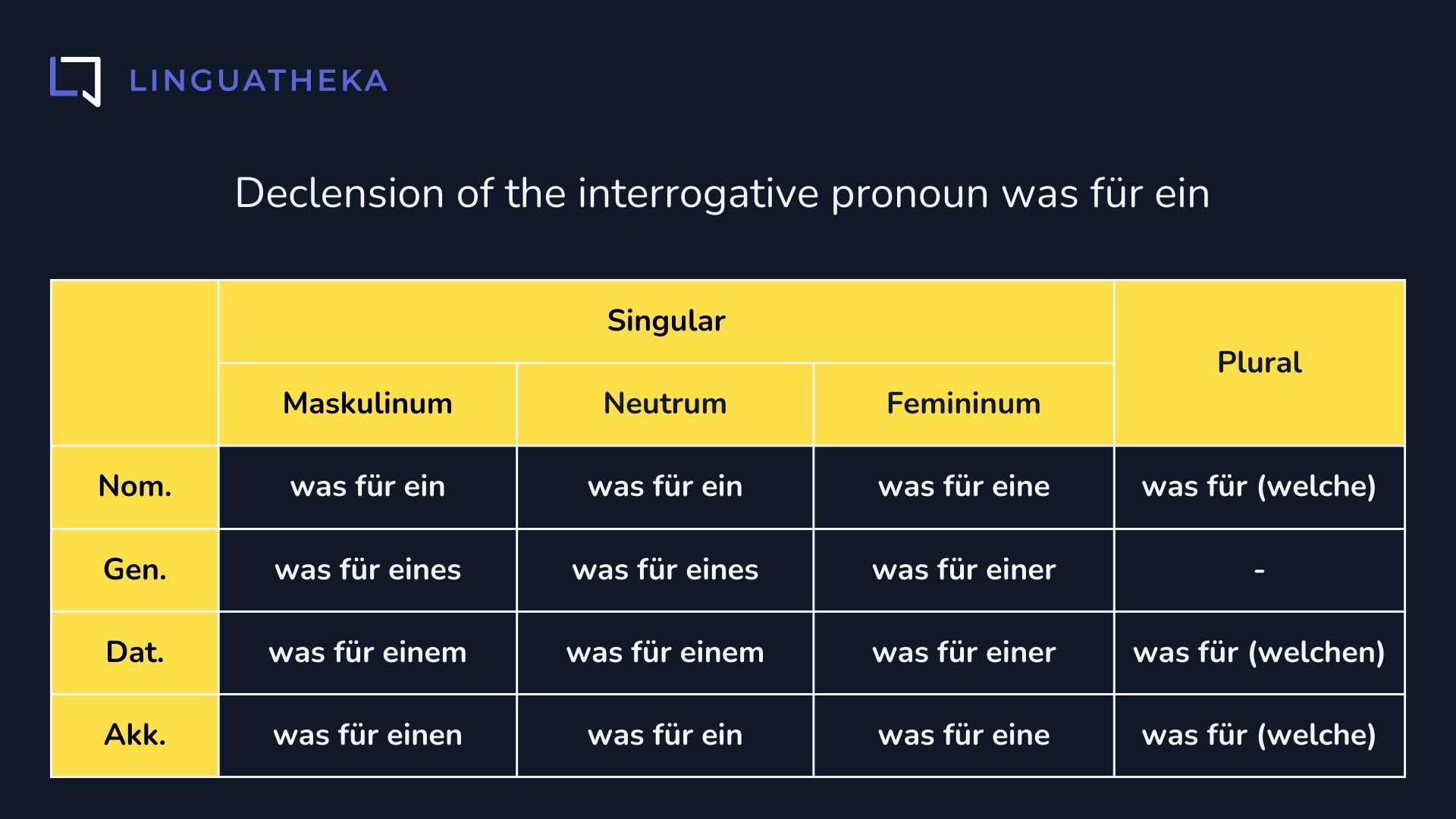Interrogative pronouns - was (what), wer (who?), wem (to whom?), wen (whom?), wessen (whose?), welcher (which?), was für ein (what kind of?) - are used to replace nouns, pronouns, and adjectives in interrogative sentences.
Was hast du gesagt? - What did you say?
Wer ist der Mann da? - Who is that man?
Wem hat er das Buch geschenkt? - To whom did he give the book?
Wen siehst du draußen? - Whom do you see outside?
Wessen Handy liegt auf dem Tisch? - Whose phone is on the table?
Welchen Tee magst du? - Which tea do you like?

Was has no Dative form. In German, the Accusative form of this pronoun with a preposition is usually used instead of the Dative.
Mit was beschäftigst du dich? - What are you occupied with?
Such combinations are often replaced by pronominal adverbs – adverbs that substitute a preposition and pronoun combination:
Womit beschäftigst du dich? - What are you occupied with?
The interrogative pronoun wessen is not declined in either the singular or plural, and translates as whose (m./f./n./pl.).
The interrogative pronoun welcher (which?) functions as an attribute in a sentence and is declined like the definite article:

In the case of the interrogative pronoun was für ein (what kind of?), only the indefinite article ein is declined. In the plural, this article is not used. Instead, the pronoun welche is generally used:

Also, by following the links below, you can explore other groups of pronouns in German - personal, possessive, indefinite, demonstrative.
How clear and useful was the article to you?
Start now
days
hours
min
sec
Price €160.00
Language Deutsch, B1.2
Start February 26, 2026
Course Leichter Kurs B1.2
Group #124
Start now
days
hours
min
sec
Price €160.00
Language Deutsch, B1.2
Start February 26, 2026
Course Leichter Kurs B1.2
Group #124



